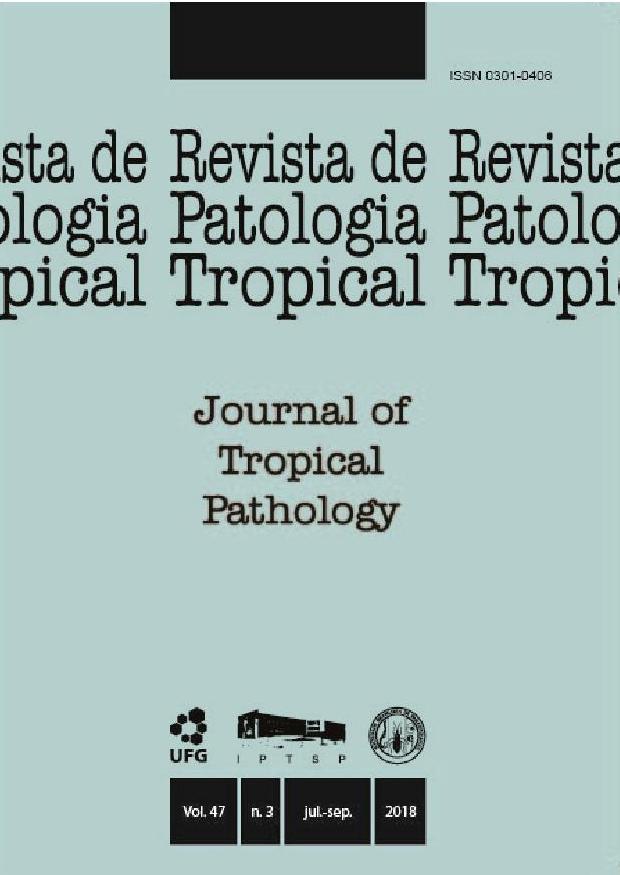MATERNAL RISK FACTORS FOR THE TRANSMISSION OF CONGENITAL CHAGAS DISEASE
DOI:
https://doi.org/10.5216/rpt.v47i3.55252Keywords:
hagas Disease, congenital transmission, epidemiological factors, Trypanosoma cruzi.Abstract
The present article looks at the association between the epidemiological history of women infected with Trypanosoma cruzi and the risk of vertical transmission. Eighty-three chronically infected mothers and their 237 children were studied, using a cohort design. All patients reside in Santa Fe city, Argentina. Twenty-five women transmitted the infection to 38 children. The potential risk factors evaluated in the mothers were exposure to vector transmission, blood
transfusion history, maternal seropositivity, parasitemia and age at birth of the child. 72% (18/25) of the mothers who transmitted the infection to their children, had little or no contact with the vector, while only 28% (7/25) of the mothers presented a history of medium or high risk of vector infection. The differences were significant (p < 0.05). Forty-one percent of the women who presented maternal history as the probable route of infection, transmitted the
parasite to more than one child (1.86 ± 0.33; CI95% = 1.03-2.68). In addition, the most frequent history, among the women who transmitted the disease to their children, was the absence of exposure to vector transmission and transfusion with unknown maternal serology. The route of infection was probably transplacental. These observations suggest that there are family genetic characteristics involved in vertical transmission. The parasite was found in 71% of the mothers who transmitted the infection to their children and were able to perform xenodiagnoses. After controlling for the other variables, the logistic regression analysis showed that xenodiagnosis (+) is a risk factor for congenital transmission; the relative risk was 12.2 (95% confidence interval:
2.9 - 50.1). No differences were found when analyzing the mother’s age and transfusion history. The highest risk of congenital transmission was associated with detectable parasitemia and less maternal exposure to the vector.
Downloads
Downloads
Published
How to Cite
Issue
Section
License
The manuscript submission must be accompanied by a letter signed by all authors stating the full name and email address, confirming that the material has not been published or is under consideration for publication elsewhere, and agreeing to transfer copyright in all media and formats for Journal of Tropical Pathology. The authors will not be paid for published articles. They are solely responsible for the content of those articles, even if the Editor holds the right to adjust them to the norms of the journal.
The reviewers will not be paid for the peer review process.

